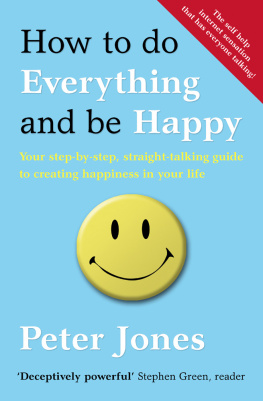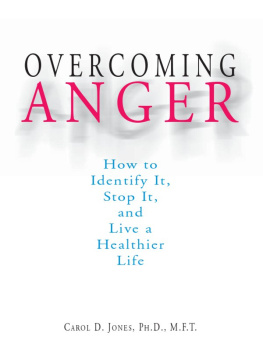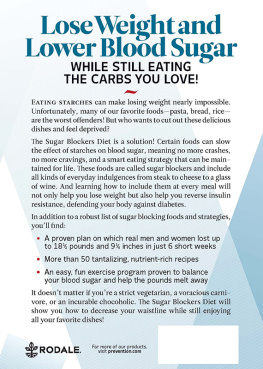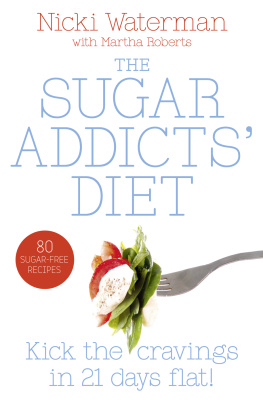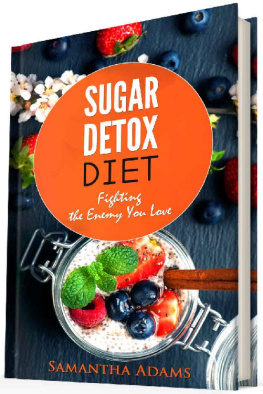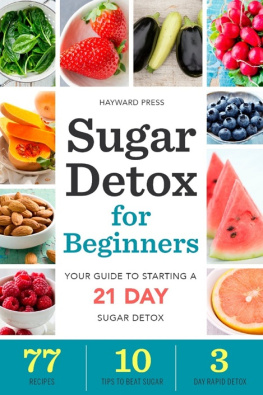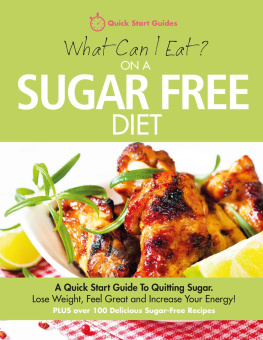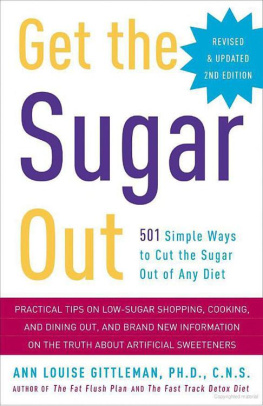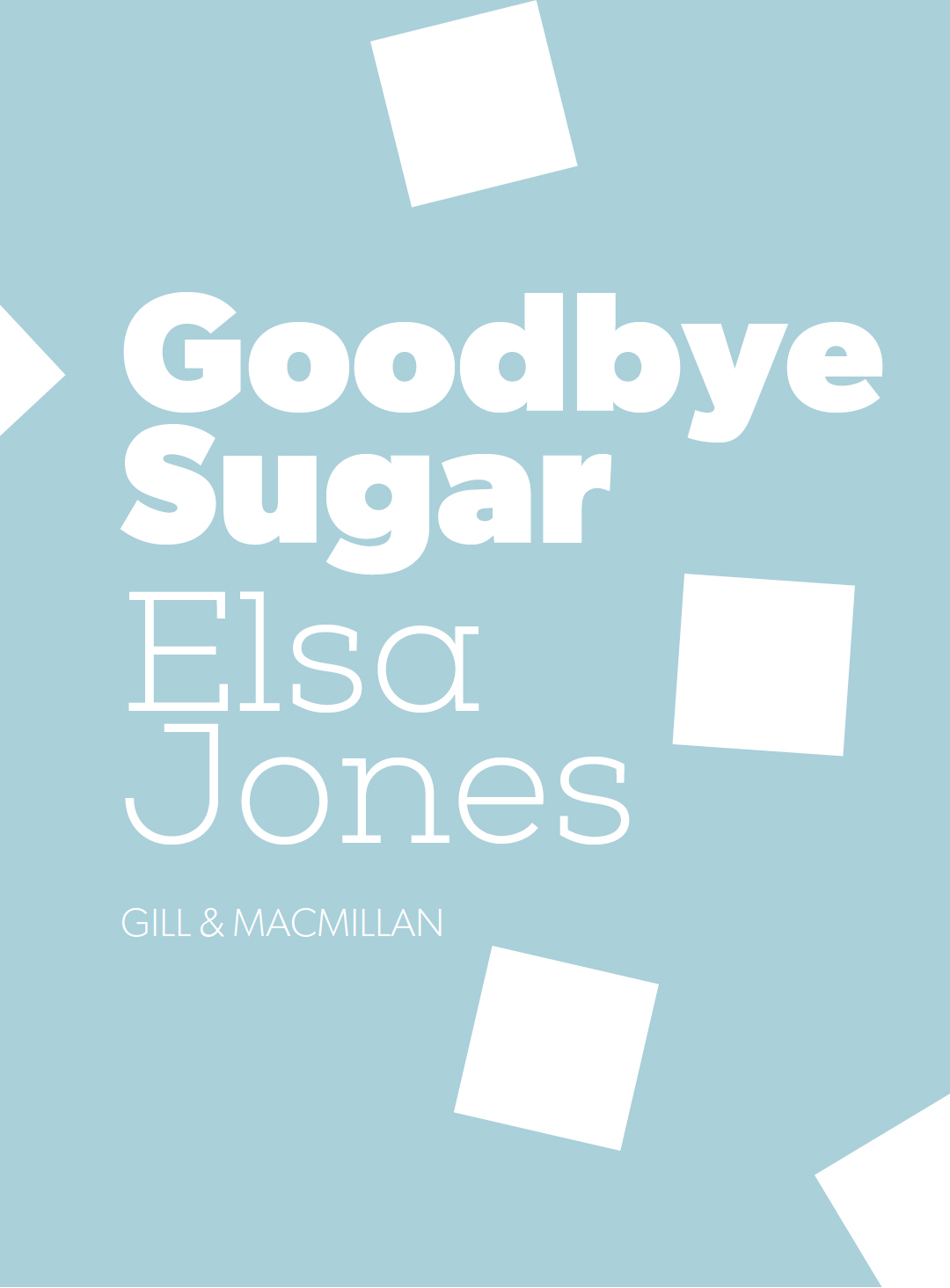
Contents

PREFACE
ITS A WHITE, powdery substance that gives you guaranteed pleasure. The more you have it, the more you want it. You cant get it off your mind, so you keep coming back for more. Even when you try to stay away from it, it finds ways to sneak back into your life every single day and you feel powerless in its presence.
Youd be forgiven for thinking were talking about some dangerous or illegal drug here, but believe it or not, were talking about sugar. It may seem harmless in comparison, but it does have similar addictive qualities and it also has the power to wreak havoc on our health. We all know that too much sugar is bad for us, but nowadays were swamped with the stuff and, as a result, were hooked.
Over the last few decades sugar has crept into all areas of our daily diet, from the sweet treats we award ourselves to family essentials such as yoghurt, soup and cereal. In fact, it may surprise you to know that the average person consumes over 20 teaspoons per day. The World Health Organization currently recommends that we limit our sugar intake to no more than 6 teaspoons per day. However, sticking to this limit is a lot easier said than done because most of the sugar we consume each day is done unknowingly via everyday health foods that have had sugar added to them.
But why should you care? Is sugar really that bad for you? In a word, yes. Its no secret that too much sugar leads to weight gain, but the effects that sugar has on our bodies go far beyond our waistlines. The sad truth is that many of us are digging our own graves one sweet spoonful at a time.
Research shows that a high-sugar diet can be toxic to the body. It has been linked to the three main killers worldwide: heart disease, cancer and diabetes. A high sugar intake is also linked to fatigue, mood swings, PMS, lowered immunity, digestive problems, premature ageing the list goes on and on.
Yet despite all the health warnings, many of us have real difficulty resisting our cravings for the sweet stuff, and there are two good reasons why. Firstly, as humans, we are biologically programmed to like sweet foods. When we eat something sugary, it stimulates the release of dopamine in our brain, which makes us feel pleasure. The brain recognises and likes this feeling and begins to crave more, which is how we can become both physically and emotionally dependent on it. In fact, it may frighten you to learn that heroin, morphine and sugar all stimulate the same receptors in our brain.
Secondly, food manufacturers know of our weakness for all things sweet and take full advantage by adding as much sugar as possible to everyday foods, which continually feeds and re-enforces our sweet tooth. Its a vicious cycle and were easy prey.
And thats just the physical side of things. Sugar has become so entrenched into our everyday lives that many of us have become emotionally dependent on it as well. Its what we reach for to help us cope with the challenges of day-to-day life. Its no wonder so many of us have trouble kicking the sugar habit.
So is it possible to break free from sugar? Yes, it is, provided you get to the real roots of the problem first. Goodbye Sugar is here to help you do just that.
INTRODUCTION
IF YOURE READING THIS, chances are youve tried to cut down on sweet foods in the past and have realised that its a hell of a lot easier said than done. You may even feel powerless against your sugar cravings. If you do, let me tell you that youre certainly not alone. I would say that at least two-thirds of my clients tell me they experience strong and persistent cravings for sweet foods on a daily basis. In fact, most say they feel addicted to sugar and cite sugar cravings as their biggest obstacle to losing weight and keeping it off. Id have to agree. Not only does sugar prevent you from maintaining your ideal weight, it also zaps your energy and mood and keeps you trapped in a cycle of wanting more and more.
But its not just physical cravings that keep us hooked. Whether you realise it or not, you probably have some strong emotional ties that need to be addressed too. Your attachment to sugar is likely to be deeply ingrained into your day-to-day routine and social practices. Its what you reward yourself with after a hard days work, how you celebrate special occasions, soothe away negative emotions and how you treat yourself at the weekend. Most of us fall into a sugar habit over time without even realising it. Its an easy habit to make, but a difficult one to break.
Through my consultation work, I have helped countless clients overcome their sugar cravings, lose weight and feel great by giving them targeted dietary advice and a nutrition plan to follow. For some, simply changing their eating habits is enough to kick the sugar habit for good; for others, not so much.
I have found that many clients do really well with dietary changes for a period of time, but as time goes by and real-life obstacles set in, many start falling back into old habits. I wondered why some people would do so well and others wouldnt. And then it hit me. Sugar isnt just physically addictive; its emotionally addictive too.
I realised that the dietary advice I was giving was perfectly sound; its just that for some people it was only addressing one part of the problem: the physical side. To enable clients to overcome their sugar habit for good, Id need to help them identify and address the psychological and emotional factors behind their eating patterns as well.
To do this, I decided to enhance my skills as a nutritionist by completing a diploma in cognitive behavioural therapy (CBT), which research shows to be the most widely validated and effective form of psychological therapy available today. In a nutshell, CBT helps people understand the thoughts and feelings that influence all types of behaviour, including eating. Hundreds of studies have demonstrated the effectiveness of CBT for weight management and I have found that using CBT coaching techniques as part of my sessions is extremely effective in helping my clients change their eating habits for good.

Essentially, I have combined my qualifications and expertise in nutrition with relevant CBT coaching techniques and created an effective two-step programme that combines nutritional science with powerful psychological tools to beat cravings, conquer emotional eating, reframe negative thoughts and ultimately have a controlled and healthy relationship with all types of food including sugar.
As my success rates rose, I began to think about how I could bring these tools to as many people as possible, and so the idea for Goodbye Sugar was born. I want to share my knowledge with you so that you, too, can enjoy the freedom that comes from true health. This is a tried and tested plan that I have created through years of experience working with people who struggle with unhealthy eating habits and weight. Bottom line: it works. I have seen hundreds of clients take back control over their eating habits and their health using the tools Im about to give you. Its your turn now and Ill be here to guide you every step of the way.
Why Goodbye Sugar works
YOU MAY HAVE already made several attempts to quit sugar in the past by going on a sugar detox or a sugar cleanse. You probably felt great for a while, but once the novelty wore off and day-to-day problems set in, you went straight back to your old eating habits, right?
Next page


